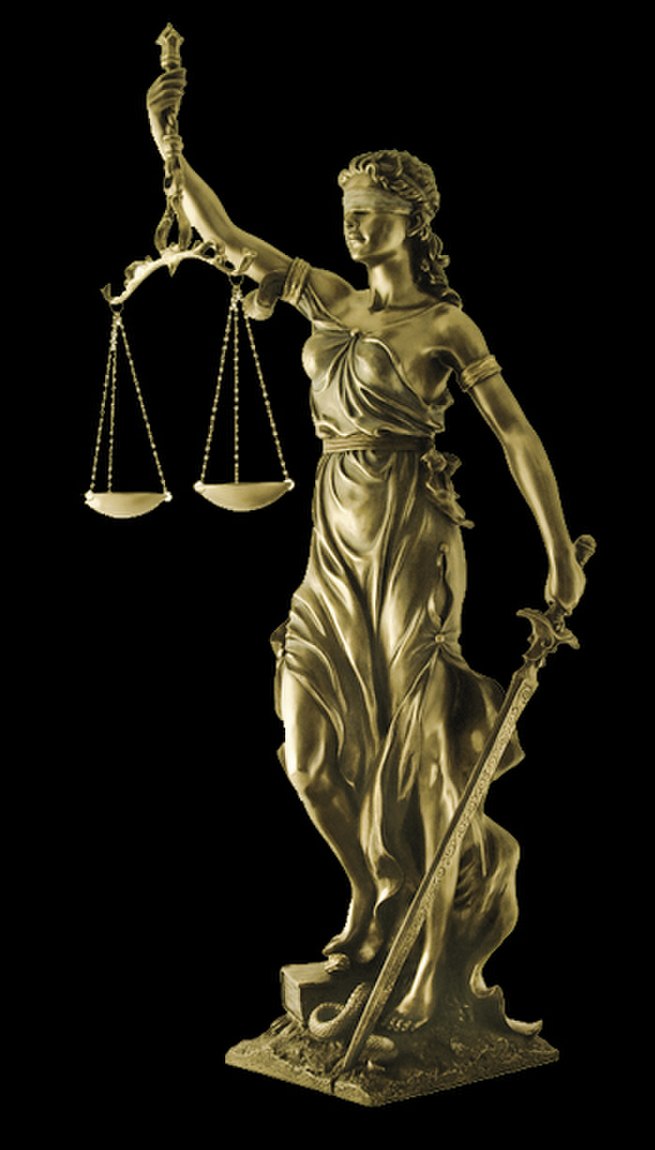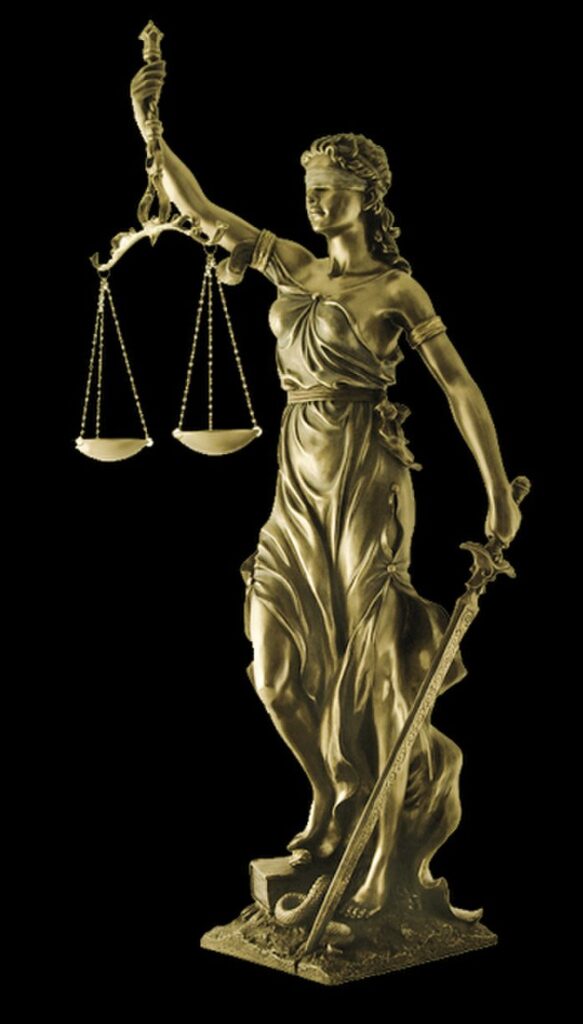
Main Difference
The main difference between Theory and Law is that the Theory is a contemplative and rational type of abstract or generalizing thinking, or the results of such thinking and Law is a system of rules and guidelines, generally backed by governmental authority.
-
Theory
A theory is a contemplative and rational type of abstract or generalizing thinking, or the results of such thinking. Depending on the context, the results might, for example, include generalized explanations of how nature works. The word has its roots in ancient Greek, but in modern use it has taken on several related meanings.
Theories guide the enterprise of finding facts rather than of reaching goals, and are neutral concerning alternatives among values. A theory can be a body of knowledge, which may or may not be associated with particular explanatory models. To theorize is to develop this body of knowledge.
As already in Aristotle’s definitions, theory is very often contrasted to “practice” (from Greek praxis, πρᾶξις) a Greek term for doing, which is opposed to theory because pure theory involves no doing apart from itself. A classical example of the distinction between “theoretical” and “practical” uses the discipline of medicine: medical theory involves trying to understand the causes and nature of health and sickness, while the practical side of medicine is trying to make people healthy. These two things are related but can be independent, because it is possible to research health and sickness without curing specific patients, and it is possible to cure a patient without knowing how the cure worked.
In modern science, the term “theory” refers to scientific theories, a well-confirmed type of explanation of nature, made in a way consistent with scientific method, and fulfilling the criteria required by modern science. Such theories are described in such a way that any scientist in the field is in a position to understand and either provide empirical support (“verify”) or empirically contradict (“falsify”) it. Scientific theories are the most reliable, rigorous, and comprehensive form of scientific knowledge, in contrast to more common uses of the word “theory” that imply that something is unproven or speculative (which is better characterized by the word hypothesis). Scientific theories are distinguished from hypotheses, which are individual empirically testable conjectures, and from scientific laws, which are descriptive accounts of how nature behaves under certain conditions.
-
Law
Law is a system of rules that are created and enforced through social or governmental institutions to regulate behavior. Law is a system that regulates and ensures that individuals or a community adhere to the will of the state. State-enforced laws can be made by a collective legislature or by a single legislator, resulting in statutes, by the executive through decrees and regulations, or established by judges through precedent, normally in common law jurisdictions. Private individuals can create legally binding contracts, including arbitration agreements that may elect to accept alternative arbitration to the normal court process. The formation of laws themselves may be influenced by a constitution, written or tacit, and the rights encoded therein. The law shapes politics, economics, history and society in various ways and serves as a mediator of relations between people.
A general distinction can be made between (a) civil law jurisdictions, in which a legislature or other central body codifies and consolidates their laws, and (b) common law systems, where judge-made precedent is accepted as binding law. Historically, religious laws played a significant role even in settling of secular matters, and is still used in some religious communities. Islamic Sharia law is the world’s most widely used religious law, and is used as the primary legal system in some countries, such as Iran and Saudi Arabia.
The adjudication of the law is generally divided into two main areas. Criminal law deals with conduct that is considered harmful to social order and in which the guilty party may be imprisoned or fined. Civil law (not to be confused with civil law jurisdictions above) deals with the resolution of lawsuits (disputes) between individuals or organizations.
Law provides a source of scholarly inquiry into legal history, philosophy, economic analysis and sociology. Law also raises important and complex issues concerning equality, fairness, and justice.
-
Theory (noun)
Mental conception; reflection, consideration. 16th-18th c.
-
Theory (noun)
A phenomena and correctly predicts new facts or phenomena not previously observed, or which sets out the laws and principles of something known or observed; a hypothesis confirmed by observation, experiment etc. from 17th c.
-
Theory (noun)
The underlying principles or methods of a given technical skill, art etc., as opposed to its practice. from 17th c.
-
Theory (noun)
A field of study attempting to exhaustively describe a particular class of constructs. from 18th c.
“Knot theory classifies the mappings of a circle into 3-space.”
-
Theory (noun)
A hypothesis or conjecture. from 18th c.
-
Theory (noun)
A set of axioms together with all statements derivable from them. Equivalently, a formal language plus a set of axioms (from which can then be derived theorems).
“A theory is consistent if it has a model.”
-
Law (noun)
The body of binding rules and regulations, customs{{,}} and standards established in a community by its legislative and judicial authorities.
“the courts interpret the law; entrapment is against the law”
-
Law (noun)
The body of such rules that pertain to a particular topic.
“property law; commercial hunting and fishing law”
-
Law (noun)
A binding regulation or custom established in a community in this way.
“There is a law against importing wallabies.”
“A new law forbids driving on that road.”
“The court ruled that the executive order was not law and nullified it.”
-
Law (noun)
A rule, such as:
-
Law (noun)
Common law, as contrasted with equity.
-
Law (noun)
Any rule that must or should be obeyed, concerning behaviours and their consequences. mores.}}
“”Do unto others as you wish them to do unto you” is a good law to follow.”
“the law of self-preservation”
-
Law (noun)
A rule or principle regarding the construction of language or art.
“the laws of playwriting and poetry”
-
Law (noun)
A statement (in physics, etc) of an (observed, established) order or sequence or relationship of phenomena which is invariable under certain conditions. theory.}}
“the laws of thermodynamics”
“Newton’s third law of motion states that to every action there is always an equal and opposite reaction. This is one of several laws derived from his general theory expounded in the Philosophiæ Naturalis Principia Mathematica.”
-
Law (noun)
A statement (of relation) that is true under specified conditions; a mathematical or logical rule.
“Mathematical laws can be proved purely through mathematics, without scientific experimentation.”
-
Law (noun)
Any statement of the relation of acts and conditions to their consequences.
“the law of scarcity; the law of supply and demand”
-
Law (noun)
The control and order brought about by the observance of such rules.
“They worked to maintain law and order.”
“It was a territory without law, marked by violence.”
-
Law (noun)
A person or group that act(s) with authority to uphold such rules and order (for example, one or more police officers).
“Here comes the law — run!”
-
Law (noun)
The profession that deals with such rules (as lawyers, judges, police officers, etc).
“He is studying for a career in law.”
“She has practiced law in New York for twenty years.”
-
Law (noun)
Jurisprudence, the field of knowledge which encompasses these rules.
“She went to university to study law.”
-
Law (noun)
Litigation, legal action (as a means of maintaining or restoring order, redressing wrongs, etc).
“They were quick to go to law.”
-
Law (noun)
An allowance of distance or time (a head start) given to a weaker (human or animal) competitor in a race, to make the race more fair.
-
Law (noun)
One of two metaphysical forces ruling the world in some fantasy settings, also called order, and opposed to chaos.
-
Law (noun)
An oath sworn before a court, especially disclaiming a debt. wager of law”, “wage one’s law”, “perform one’s law”, “lose one’s law”.}}
-
Law (noun)
A tumulus of stones.
-
Law (noun)
A hill.
-
Law (verb)
To work as a lawyer; to practice law.
-
Law (verb)
To prosecute or sue (someone), to litigate.
-
Law (verb)
To rule over (with a certain effect) by law; govern.
-
Law (verb)
To enforce the law.
-
Law (verb)
To subject to legal restrictions.
-
Law (interjection)
An exclamation of mild surprise; lawks.

